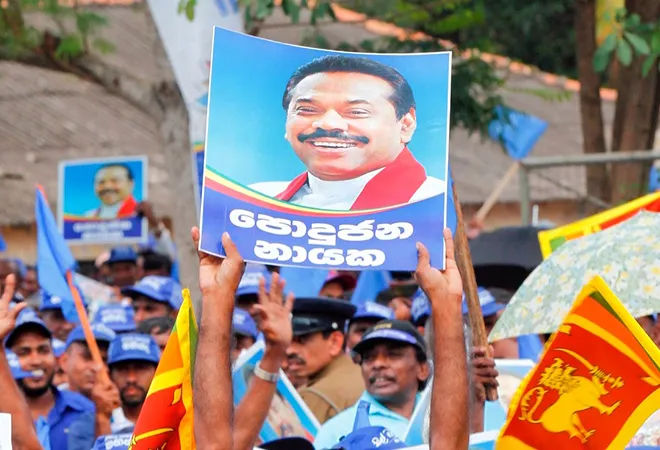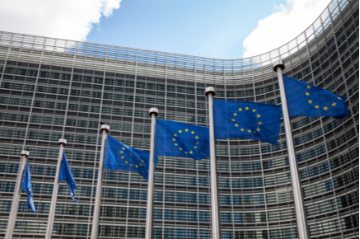The continuing storm in Sri Lanka’s Russian tea cup is more diplomatic and political than a beetle-storm, if a section of the media reports are to be believed. Then there are also reports that the Russian tea-import stoppage owed to Sri Lanka stopping to import asbestos from that nation.
If it is asbestos, then there are scientific and medical reasons that Sri Lanka can cite to argue that most nations had stopped using the material owing to health reasons, very many years and decades ago. Going beyond beetle and/or asbestos, the issue provides a cause and occasion for Sri Lanka to sit back and think back, to consider and reconsider as to what might have gone wrong, if things were as they are being claimed to be.
Time used to be when even in the post-Cold War era, where a new Russia was struggling both internally and externally to find its place in the new world without the Soviet Union, Moscow would be on Sri Lanka’s side, almost always. When tsunami struck, President Putin was there, along with other world leaders. When UNHRC troubled the nation, immediately after the war’s end, and afterward, Russia was there with Sri Lanka alongside China, first in the UNSC, where it mattered, and at Geneva, where the West had to move the matter, only because of the possibilities of a twin-veto in New York.
Not any more, it would seem. Rather, Sri Lanka cannot take Russian support for granted, any more, if the beetle-storm has any political angle to it. It sounds plausible still as otherwise, Moscow could have quietly discussed the presence of beetle in the tea imported from the country, and found a way out for this consignment and future exports, too.
It is not unlikely that Russia feels politically threatened by the UNP-centric, ‘liberal democratic’ coalition government in Colombo not giving Moscow the consideration that it deserves as an upright friend of the nation, no questions asked, no challenges thrown, on issues that are inconvenient to the latter but where its voice and initiatives (too) could matter in the international arena. It may be a polite reminder that while Sri Lanka can celebrate the return of GSP-Plus from Europe, it cannot ignore the traditional tea trade that account for 12 per cent of Sri Lanka’s exports of a life-line commodity, just because all stake-holders have got used to it. For the West, humans and human rights may be the arm-twister in a way, but Russia can settle for bees and beetles, instead, leaving humans and human rights alone!
Nations, big and small, around the world have been over-leveraging on their geo-strategic locale since time immemorial, and have designed their geopolitics, also to their geo-economic advantage, thus. Smaller nations, in which list Sri Lanka may be among the top few owing to size and locale, both, to play out the geo-strategic advantage more than most others. In the name of balancing between/among regional and extra-regional players, Sri Lanka and other nations with location-advantage have often tried to balance out such other big nations in the neighbourhood and otherwise.
The idea has been to seek and obtain economic and political benefits for the nation, people and the political leadership(s) of the day. Considering that such other nations that bid and/or bet on the likes of Sri Lanka are not on a one-off trip, this also demands and ensures a geo-politic, geo-strategic continuity of a larger kind, independent of domestic variables of the electoral kind.
So when the US seemingly took a strategic interest in Sri Lanka in the Cold War era, even after acquiring Diego Garcia in the neighbourhood, there needed to be some continuity in the nation’s foreign and security policies, whatever the turn in domestic politics and election-induced results. When China invested on Hambantota and Colombo Port City, there was assumed to be a policy-consensus of sorts among the nation’s big players, with the result the debt-to-equity conversion was only for China’s asking, not the other way round.
Maybe, there were no overt or covert deals between the predecessor Rajapaksa regime and Moscow on human rights, UNSC and/or UNHRC, but a re-merging Russia too would not want to be left out of the ‘most happening place’ in the geostrategic world, namely, the Indian Ocean Region (IOR). This is particularly since the days neighbouring India began moving out of the exclusive Russian orbit after the ill-experiences of the ‘cryogenic engine’ kind under the Yeltsin Raj.
If the Rajapaksa regime was seen as tilting towards one side in the global arena and against the other, it was actually leaning on that somebody’s shoulders. On UNSC, if not UNHRC, it could have been just Russia, which was/is as much a P-5 veto-member as the rest, China included. But Mahinda R also wanted to combine war-victory with development for his people, possibly a long-term domestic politico-economic goal, where China had more to offer than Russia.
Today, when China is the cheap and plenty manufacturing hub of the world in every which way, that nation everything including money (accompanied by ‘captive labour’) to offer, but has nothing to pick from Sri Lanka, or any other ‘client-nation’ in any big way. So may be the US and the rest of much of the West, to a greater or lesser extent.
In contrast, Russia may not have much to offer, but has tea to import in substantial quantities. For Europe and the US, too, GPS-Plus is an added incentive for Sri Lanka, and they have leveraged human rights as much, to balance out China on the geo-strategic front, though failing in their own geo-political requirements — deliberately and calculatedly so.
The question remains, and it is simple and complex at the same time. Does Sri Lanka want to become a ‘satellite nation’, if not a ‘co-opted colony’ of China — or, any other nation? Or, does it want to play out its geo-strategic location advantage for economic benefits and political backing, and stop there. In the post-Cold War, 21st century world, as much as earlier, and at times more, there are no free lunches.
Be it, America, China or Russia, or any European power, visible or otherwise, they are at best investing in Sri Lanka’s present but on their own future. An exception, however, limited could be immediate neighbours, the larger India included, where Sri Lanka’s location advantage has real and greater purchase than that are invented and invested, with an uncertain future (alone) in mind.
If Sri Lanka were to lose the Russian tea-market, then it would have to find another. When the nation lost EU’s GSP-Plus, it did find other markets, but that is again playing a dangerous game, where Sri Lanka and Sri Lanka alone would stand expose, bare, ill-equipped and unarmed.
That way, if there is more to the beetle-storm Sri Lanka should not try to push it under the carpet as it could do with GSP-Plus during and immediately after the war. That was a different nation, different people and different mood. That came to pass long ago, as Rajapaksa’s electoral defeat(s) showed three years back, in 2005.
It is both a warning and opportunity for the nation as a whole, and not just one party or leader, to sit back and take a fresh look at its post-war geo-strategic policy that was sold for Rajapaksa to the polity than by Rajapaksa to the people! That will be saying less, but doing a lot — but still a beginning, some beginning at that!
This commentary originally appeared in The Island .
The views expressed above belong to the author(s). ORF research and analyses now available on Telegram! Click here to access our curated content — blogs, longforms and interviews.




 PREV
PREV


